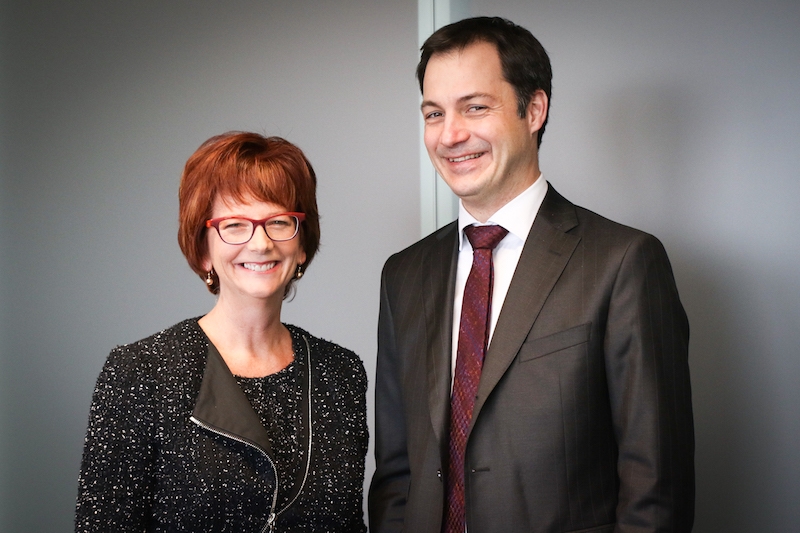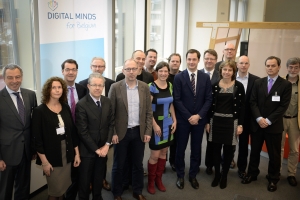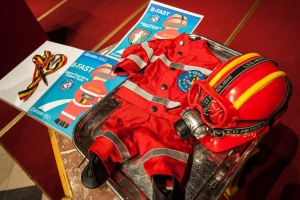Belgium confirms commitment to Global Partnership for Education (GPE)
"Worldwide, nine out of ten children attend school today. However, there is still a group of children who have never seen a classroom from the inside. In many places, the quality of the education is also very poor. " This was said by Deputy Prime Minister and Minister of Development Cooperation Alexander De Croo during his meeting this afternoon with Julia Gillard, President of the Global Partnership for Education and former Prime Minister of Australia. De Croo wishes to continue the efforts in children’s access to primary education and has assured Julia Gillard that Belgium is ready to take over supervision in Burundi on behalf of the Global Partnership for Education.
 Alexander De Croo meets Julia Gillard
Alexander De Croo meets Julia Gillard Since February 2014, Julia Gillard presides the Global Partnership for Education, which is a multilateral funding mechanism for primary and secondary education that has been created under the auspices of the World Bank Group. It brings together more than 50 developing countries and more than 30 bilateral, regional and international organizations. The main objective is to provide technical and financial support to partner countries which would enable them to achieve their national education strategies. These last three years, our country supported the Global Partnership for Education with 27 million euros. During his meeting with Julia Gillard, Alexander De Croo also confirmed that our country will continue to play an important role in the Global Partnership for Education, and that Belgium is ready, during the next years, to continue to supervise and coordinate the Global Partnership for Education in Burundi.
Smaller families, but healthier and better educated children
“The importance of access to education cannot be overemphasized. Education is a key factor in development and a lever for human rights, democratization and inclusive economic growth. Take the example of girls who get the chance to attend school. They will be able to make better choices about the size of their families and they will also have healthier and better educated children. In this way, education provides a solid basis for the development and will create a trans-generational effect." said Alexander De Croo .
“Providing access to primary education for all children was one of the Millennium Development Goals. In recent years, much progress has been made, especially in Asia and Latin America. But we must also recognize that the goal has not been reached everywhere. Still 58 million children do not attend school. Especially in Sub-Saharan Africa, where many states remain fragile, the situation is still very difficult. We must try to catch up in the coming years. In many countries, nearly half of the population is under 20 years old, so if we want to avoid a lost generation, widespread access to education is crucial."
Making quality a priority
During his meeting with Julia Gillard, Alexander De Croo also highlighted the need to maintain sufficient qualitative targets. "We cannot be satisfied with a situation where all children only have a place on the school bench. We also need to ensure that education will be sufficiently qualitative. Children sitting in a classroom with 60 other pupils will still encounter major problems. Smaller classes and well-trained teachers are just as important as a place for every child."


